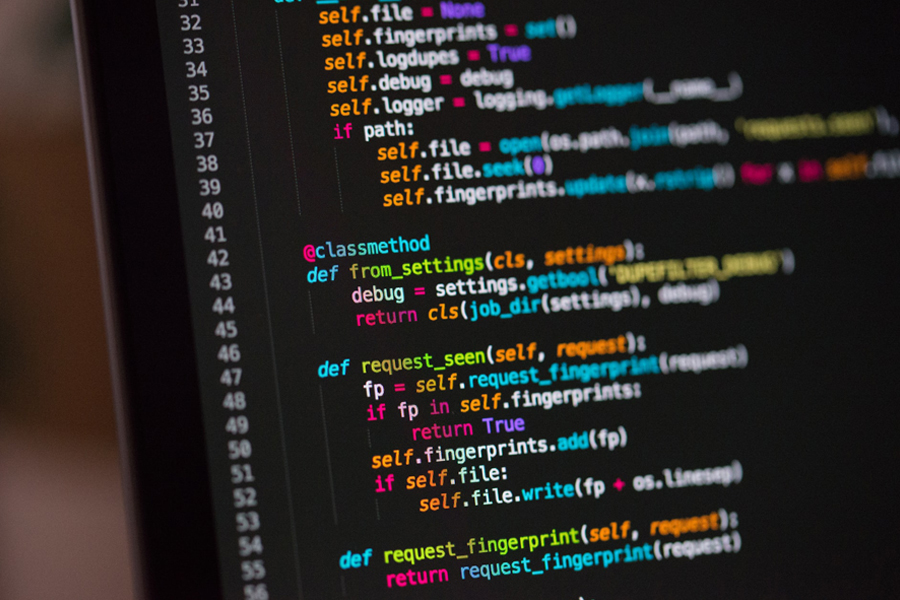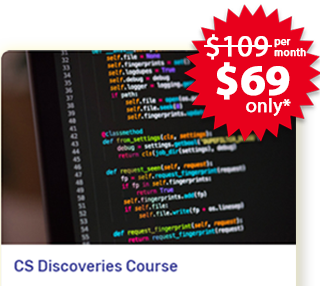Computer Science Discoveries
Overview
Computer Science Discoveries (CS Discoveries) is an introductory computer science course that empowers students to create authentic artifacts and engage with computer science as a medium for creativity, communication, problem solving, and fun.
Curriculum
Problem Solving and Computing is a highly interactive and collaborative introduction to the field of computer science, as framed within the broader pursuit of solving problems. You’ll practice using a problem solving process to address a series of puzzles, challenges, and real world scenarios. Next, you’ll learn how computers input, output, store, and process information to help humans solve problems. The unit concludes with a project in which you design an application that helps solve a problem of your choosing.
In Unit 2, you’ll learn how to create and share the content on your own web pages. After deciding what content you want to share with the world, you’ll learn how to structure and style your pages using HTML and CSS. You’ll also practice valuable programming skills such as debugging and commenting. By the end of the unit, you’ll have a personal website that you can publish to the Internet.
In Unit 3, you’ll build on your coding experience as you program animations, interactive art, and games in Game Lab. The unit starts off with simple shapes and builds up to more sophisticated sprite-based games, using the same programming concepts and the design process computer scientists use daily. In the final project, you’ll develop a personalized, interactive program.
Unit 4 introduces the broader social impacts of computing. Through a series of design challenges, you will learn how to better understand the needs of others while developing a solution to a problem. The second half of the unit consists of an iterative team project, during which teams have the opportunity to identify a need that they care about, prototype solutions both on paper and in App Lab, and test solutions with real users to get feedback and drive further iteration.
Unit 5 is about the importance of data in solving problems and highlights how computers can help in this process. The first chapter explores different systems used to represent information in a computer and the challenges and tradeoffs posed by using them. In the second chapter you’ll learn how collections of data are used to solve problems, and how computers help to automate the steps of this process. The chapter concludes by considering how the data problem solving process can be applied to an area of your choosing.
Unit 6 explores the role of hardware platforms in computing and how different sensors can provide more effective input and output than the traditional keyboard, mouse, and monitor. Using App Lab and Adafruit’s Circuit Playground, you’ll develop programs that utilize the same hardware inputs and outputs that you see in the smart devices, looking at how a simple rough prototype can lead to a finished product. The unit concludes with a design challenge to use the Circuit Playground as the basis for an innovation of your own design.
Enroll today to book your slot!
*Weekly classes. Only limited seats available, Enroll Today.

